-
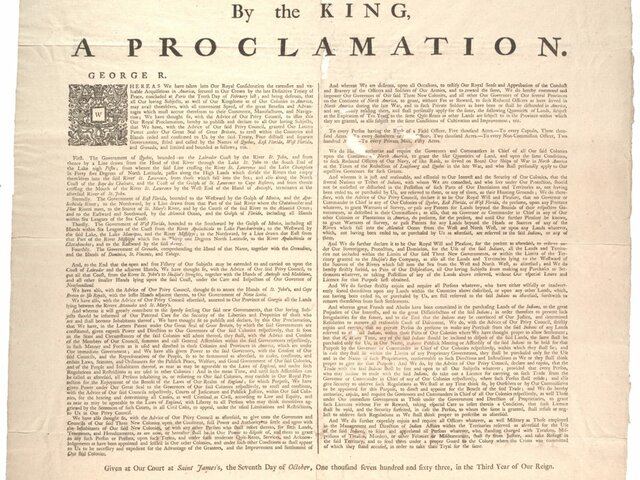 The proclamation of 1763 prohibited English settlement west of the Appalachian Mountains. This was done to prevent future wars with the natives; the English did not want to spend any more money fighting wars in North America. The colonists were outraged by the proclamation; they believed that their land was theirs because of the war they just fought.
The proclamation of 1763 prohibited English settlement west of the Appalachian Mountains. This was done to prevent future wars with the natives; the English did not want to spend any more money fighting wars in North America. The colonists were outraged by the proclamation; they believed that their land was theirs because of the war they just fought. -
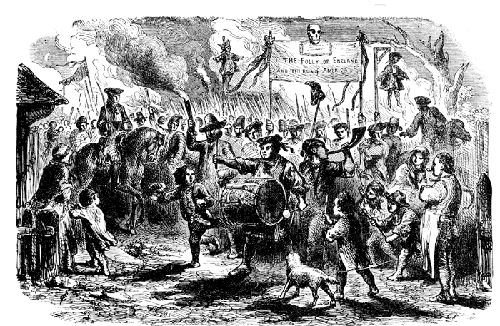 The Sugar Act was a tax-raising law that the British Parliament approved on April 5, 1764. The new Sugar Act eliminated the importation of any foreign rum and reduced the charge on foreign molasses from 6 to 3 pence per gallon while keeping a high duty on foreign refined sugar.
The Sugar Act was a tax-raising law that the British Parliament approved on April 5, 1764. The new Sugar Act eliminated the importation of any foreign rum and reduced the charge on foreign molasses from 6 to 3 pence per gallon while keeping a high duty on foreign refined sugar.
The Sugar Act was a revision of the earlier Sugar and Molasses Act of 1733. -
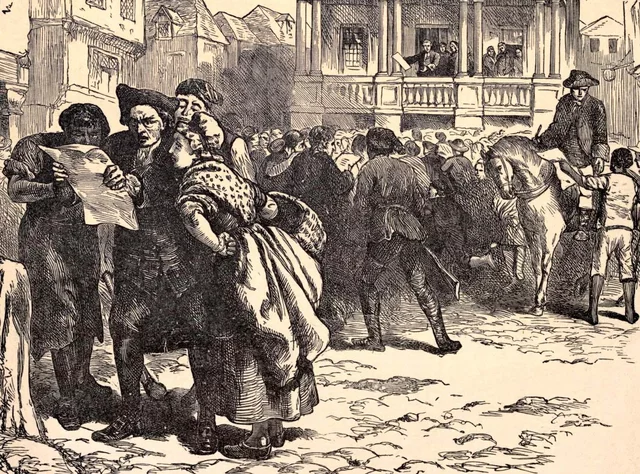 The Quartering Acts were two or more laws passed by the British Parliament ordering local governments in Britain's colonies in North America to provide accommodation and food for the armed forces. Each Quartering Act was an addition to the Mutiny Act that needed to be renewed yearly by Parliament. The colonies were compelled to house British soldiers in barracks they provided under the Quartering Act of 1765.
The Quartering Acts were two or more laws passed by the British Parliament ordering local governments in Britain's colonies in North America to provide accommodation and food for the armed forces. Each Quartering Act was an addition to the Mutiny Act that needed to be renewed yearly by Parliament. The colonies were compelled to house British soldiers in barracks they provided under the Quartering Act of 1765. -
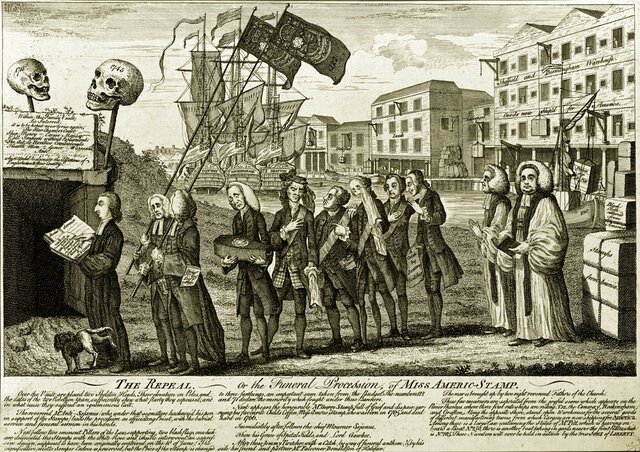 The first internal tax imposed by the British Parliament directly on American colonists was the Stamp Act of 1765. King George III signed into law the despised Stamp Act, which became effective throughout the colonies. All papers and official documents were subject to a tax in the American colonies but not in England.
The first internal tax imposed by the British Parliament directly on American colonists was the Stamp Act of 1765. King George III signed into law the despised Stamp Act, which became effective throughout the colonies. All papers and official documents were subject to a tax in the American colonies but not in England. -
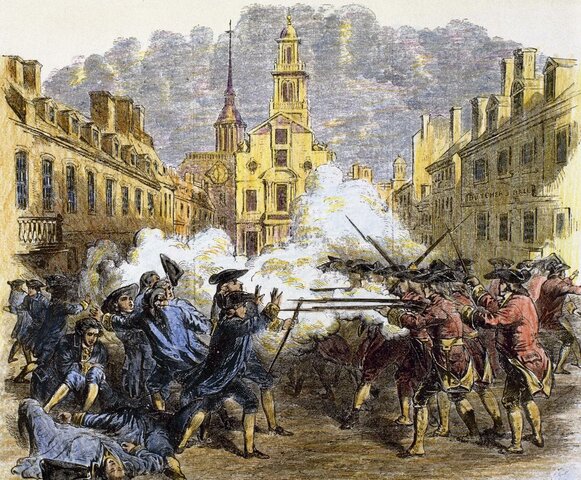 In the Boston Massacre, which occurred on March 5, 1770, a squad of nine British soldiers opened fire on five people among a throng of three hundred or more who were taunting them verbally and hurling various missiles. The Boston Massacre was important because it helped unite colonies against Britain. There Were 4,000 British Troops among 20,000 Boston Residents.
In the Boston Massacre, which occurred on March 5, 1770, a squad of nine British soldiers opened fire on five people among a throng of three hundred or more who were taunting them verbally and hurling various missiles. The Boston Massacre was important because it helped unite colonies against Britain. There Were 4,000 British Troops among 20,000 Boston Residents. -
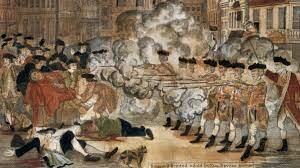 Was a law passed by the British Parliament on March 31, 1774, and it went into force on June 1 of that same year. It was one of five laws passed in the spring of 1774 to punish Boston for the Boston Tea Party of December 16, 1773. Established in March 1774 prohibited any business with the Port and mandated that Bostonians pay a hefty price to make up for the tea that was dumped into the river during the Boston Tea Party.
Was a law passed by the British Parliament on March 31, 1774, and it went into force on June 1 of that same year. It was one of five laws passed in the spring of 1774 to punish Boston for the Boston Tea Party of December 16, 1773. Established in March 1774 prohibited any business with the Port and mandated that Bostonians pay a hefty price to make up for the tea that was dumped into the river during the Boston Tea Party. -
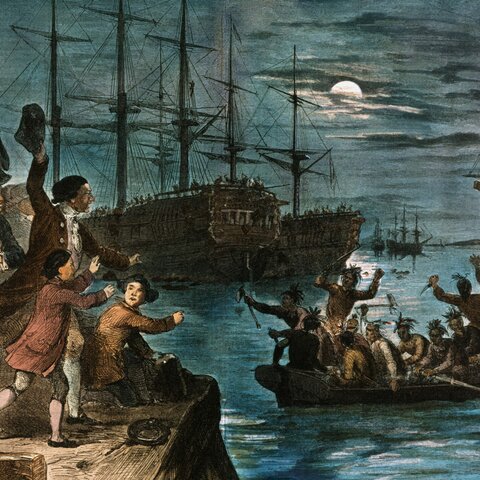 The Boston Tea Party was a political demonstration that took place at Griffin's Wharf in Boston, Massachusetts, on December 16, 1773. The Sons of Liberty organized the Boston Tea Party as a political and commercial protest in the United States. The American Colonists' protest against the British authority was known as the Boston Tea Party.
The Boston Tea Party was a political demonstration that took place at Griffin's Wharf in Boston, Massachusetts, on December 16, 1773. The Sons of Liberty organized the Boston Tea Party as a political and commercial protest in the United States. The American Colonists' protest against the British authority was known as the Boston Tea Party. -
 It was passed by the British Parliament and received royal approval on May 20, 1774. The measure effectively nullified the Province of Massachusetts Bay's charter from 1691 and granted its royally appointed governor broad powers. England made a conscious attempt to control and punish Massachusetts as retaliation for the Boston Tea Party.
It was passed by the British Parliament and received royal approval on May 20, 1774. The measure effectively nullified the Province of Massachusetts Bay's charter from 1691 and granted its royally appointed governor broad powers. England made a conscious attempt to control and punish Massachusetts as retaliation for the Boston Tea Party. -
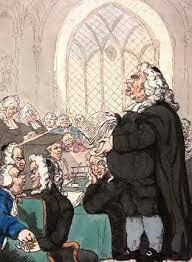 It had as its stated objective preserving the law or putting an end to unrest in Massachusetts Bay Colony while ensuring a fair trial for British officials who were accused of committing capital charges. It was a measure to ensure the administration of justice is fair and unbiased when people are being investigated for their own actions. The Massachusetts colony's right to self-government was suspended by the Administration of Justice Act.
It had as its stated objective preserving the law or putting an end to unrest in Massachusetts Bay Colony while ensuring a fair trial for British officials who were accused of committing capital charges. It was a measure to ensure the administration of justice is fair and unbiased when people are being investigated for their own actions. The Massachusetts colony's right to self-government was suspended by the Administration of Justice Act. -
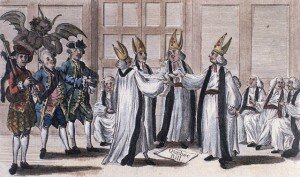 The Quebec Act expanded Catholics' political rights by excluding Protestantism from official oaths. The Quebec Act imposed a king-appointed council as part of a permanent, centralized civil government system in Canada. The Quebec Act granted emancipation for the Catholic, French-speaking settlers of the province.
The Quebec Act expanded Catholics' political rights by excluding Protestantism from official oaths. The Quebec Act imposed a king-appointed council as part of a permanent, centralized civil government system in Canada. The Quebec Act granted emancipation for the Catholic, French-speaking settlers of the province.